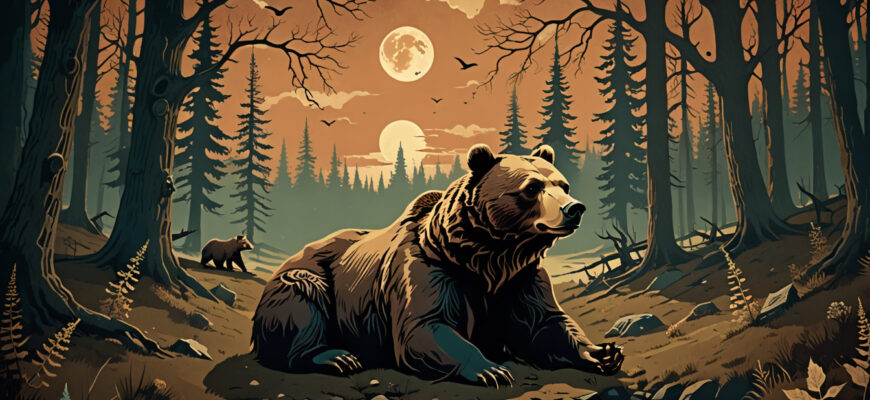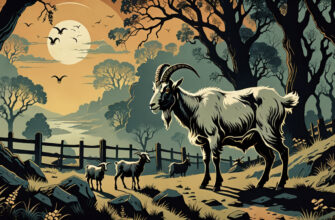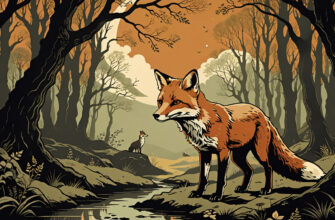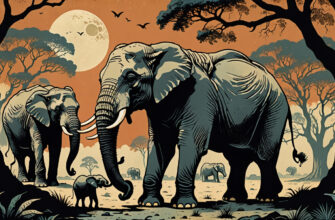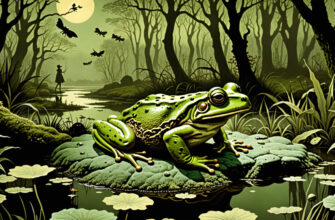Dreaming about a dead bear can land like a surreal gut punch in the middle of the night. It’s the kind of image you wake up replaying over and over, wondering what just shifted inside you. “Why now?” is the first question people usually ask. That’s where the root of the dream tends to live—in something that’s already happened. Maybe an emotional storm just passed. Maybe you’ve survived something rough and raw: a relationship fallout, family drama, a job loss, or a long uphill survival stretch. Now you’re left staring down the metaphoric corpse of some protector—or predator—that used to have power in your world.
- Understanding The Core Meaning Of Dreaming About A Dead Bear
- Psychological Interpretations: Trauma, Healing, And The Unconscious
- Folklore And Cultural Layers: Global Visions Of The Dead Bear
- Spiritual and Metaphysical Interpretations: What’s Still Lingering?
- Islamic dream interpretation
- Possible resurrections: What’s not really “dead”?
- Spiritual messages hidden in death symbolism
- Emotional Rebirth, Healing, and Reclamation
- When death triggers clarity
- Taming what once terrified you
- Rituals of emotional closure
- Final Reflections and Journal Prompts
- Questions to ask yourself
- Intentional dream practice
- Turning point, not finale
Understanding The Core Meaning Of Dreaming About A Dead Bear
A bear in dreams isn’t just a wild animal—it’s a walking metaphor. Sometimes it’s the fury we finally stopped feeding. Sometimes it’s power we had to fight to reclaim. Imagine the bear as a mashup of strength, danger, survival instinct, and deep emotion. So when that bear is dead in your dream? That’s a message that whatever it represented has lost its grip on you.
Now ask yourself:
- Do I feel safe now—or just numb?
- Is this peaceful closure, or emotional shutdown?
“Dead” in dreams doesn’t always equal disaster. It often signals an ending that had to happen. It’s like your mind finally recognized something’s over—be it a toxic pattern, a survival mode, or even a rage that used to protect you. Numbness can be mistaken for peace, and peace can feel eerie when you’ve learned to live in chaos. That’s the tension this dream is trying to hold up for you like a mirror.
Psychological Interpretations: Trauma, Healing, And The Unconscious
A bear can be more than a symbol of danger. It can represent parts of you you’ve kept buried or caged—like protective instincts that were once useful but now bite when touched. Dreaming of a dead bear could mean you’ve laid to rest the part of your psyche that stayed alert to every threat, even after danger passed.
In therapy terms, this kind of dream often emerges after burnout or long-haul stress. Think:
| Trigger | Meaning Behind Dead Bear |
|---|---|
| PTSD or trauma resurfacing | Your mind is acknowledging what you had to survive—giving it a symbolic end |
| Emotional detachment | You’re out of survival mode, but may not know how to reconnect |
| Over-identifying with strength | Now realizing you can let the “fighter” rest, finally |
From a Jungian view, the death of the bear is all about transformation. You’re shedding an old self. The dream doesn’t end with death—it’s prepping you for what rises next. Jung called this the death/rebirth cycle: something must die for something more conscious, more intentional to live. It’s not the grand Hollywood ending. It’s the quiet that comes when the threat is gone, and you’re finally allowed to breathe—but might not know what to do with that breath yet.
Folklore And Cultural Layers: Global Visions Of The Dead Bear
In Native American traditions, the bear often stands as a spiritual guardian or healer. So if you dream of killing a bear, the question becomes: what support have you lost—or are you now being asked to carry on your own? It’s not just about defeating danger. Sometimes it’s about stepping into a legacy without the one who guided you.
Slavic and Norse myths show bears as creatures of connection—between wild instinct and higher forces of justice. Dreaming of one dead could feel like being left to answer for your own decisions now that the animal guide is gone. Online dream spaces dig into this too: Reddit brings in ideas like the dream being symbolic of letting go of childhood trauma, while TikTok leans into death dreams as transformation aesthetics—beauty through destruction.
Spiritual and Metaphysical Interpretations: What’s Still Lingering?
Dreams don’t always let you off the hook just because the monster’s dead. When a bear dies in a dream, it might feel like the threat is over, but the question is: what echo lingers in its absence?
Islamic dream interpretation
In Islamic dream theory, a bear often stands for a tricky or dangerous enemy—someone cunning, not just aggressive. If it’s dead in the dream, the danger’s likely neutralized. But pay attention to context. Was the bear freshly killed or long gone? And who killed it—you, or someone else? That shifts the meaning fast.
The timing of the dream matters too. Some believe dreams are more spiritually “true” in the early morning, or right before dawn. In that window, the dream might not just be reflecting fear—it might warning you to stay sharp, especially if your spiritual state feels foggy or disconnected.
Possible resurrections: What’s not really “dead”?
Sometimes, a dead bear doesn’t stay dead. Maybe it starts twitching. Maybe a cub appears from behind it. That resurrection vibe in a dream can be unsettling—but it could be showing you that something you thought was handled isn’t done yet.
- Bear cubs or reawakening bears: These point to stress or shadow traits reactivated under new pressure.
- Revived threats: Trauma has layers. Just because one layer’s gone doesn’t mean you’re clear.
That old anger you buried? It might be peeking back out because your system isn’t ready to fully let go—or misses the clarity survival mode brought.
Spiritual messages hidden in death symbolism
Is this dream showing resolution, or are you skipping straight to “I’m fine” too fast? A dead bear might feel like a win, but sometimes that imagery masks avoidance. Emotional bypassing turns healing into performance.
Occasional nightmares can act like body alarms—nudging you to get back into your bones and stop mentally dissociating. If that bear was about survival instincts or rage, its death could be your psyche’s signal: stop running, start feeling. You’re safe enough now to face what’s left.
Emotional Rebirth, Healing, and Reclamation
Sometimes death dreams don’t mean something awful—just that something’s over. And when the storm passes, the silence can be just as loud.
When death triggers clarity
There’s weird peace in the aftermath. After grief comes space. If you’ve been emotionally wrecked and dream of a dead bear, your body might finally be integrating the lessons your mind has been dodging.
Yeah, things fell apart. But now there’s nothing left chasing you. Maybe that bear’s corpse is the final sign that a cycle has closed—and you’re stepping into life that’s not ruled by survival anymore.
Taming what once terrified you
Think of the bear as that part of you that used to burn hot—rage, panic, defensiveness. When that goes quiet, you might feel free. Or numb.
Not all silence is healing. Sometimes it’s suppression, especially if you’re proud the bear’s dead… but also scared to admit part of you needed it to fight.
The absence of intensity can be uncomfortable. It might be a good thing. Or it might be time to ask what tools you’re using now, now that the claws are gone.
Rituals of emotional closure
Processing these dreams needs more than analysis. Create space to feel it—rituals help anchor the lesson.
- Dream journaling: Write every detail, even if it’s weird or gross.
- Build a mini altar: Stone, candle, dried leaf—anything that represents your transformation.
- Therapy integration: Use the dream as a session entry point.
And what if you thanked the bear? Not sarcastically. What would it mean to say goodbye and honor it—for protecting you once, even violently, before it became too much?
Final Reflections and Journal Prompts
Questions to ask yourself
Some dreams don’t explain themselves, but they give you questions that matter more than answers. Ask yourself:
- What part of myself did that bear represent?
- What was I feeling when it died?
- Did the relief come with a weird sadness?
Dissect the discomfort. That’s where some incredible release can happen.
Intentional dream practice
Most of us crash into dreams and hope for the best. But you can prep differently. Try this before bed:
- Set a quiet tone—no doomscrolling right before sleep.
- Tell your brain what you want: clarity, safety, calm closure.
- Picture a safe ending—not just a dead bear, but a new path opening.
Treat your subconscious like a conversation, not a haunted house.
Turning point, not finale
The dream might feel like a period, but it’s just a comma. You survived. But survival isn’t the story. It’s the beginning of the story you choose.
So what now? If the fight is over, what kind of peace are you building? Start that journey with one small move—even if it’s just breathing like you mean it.
